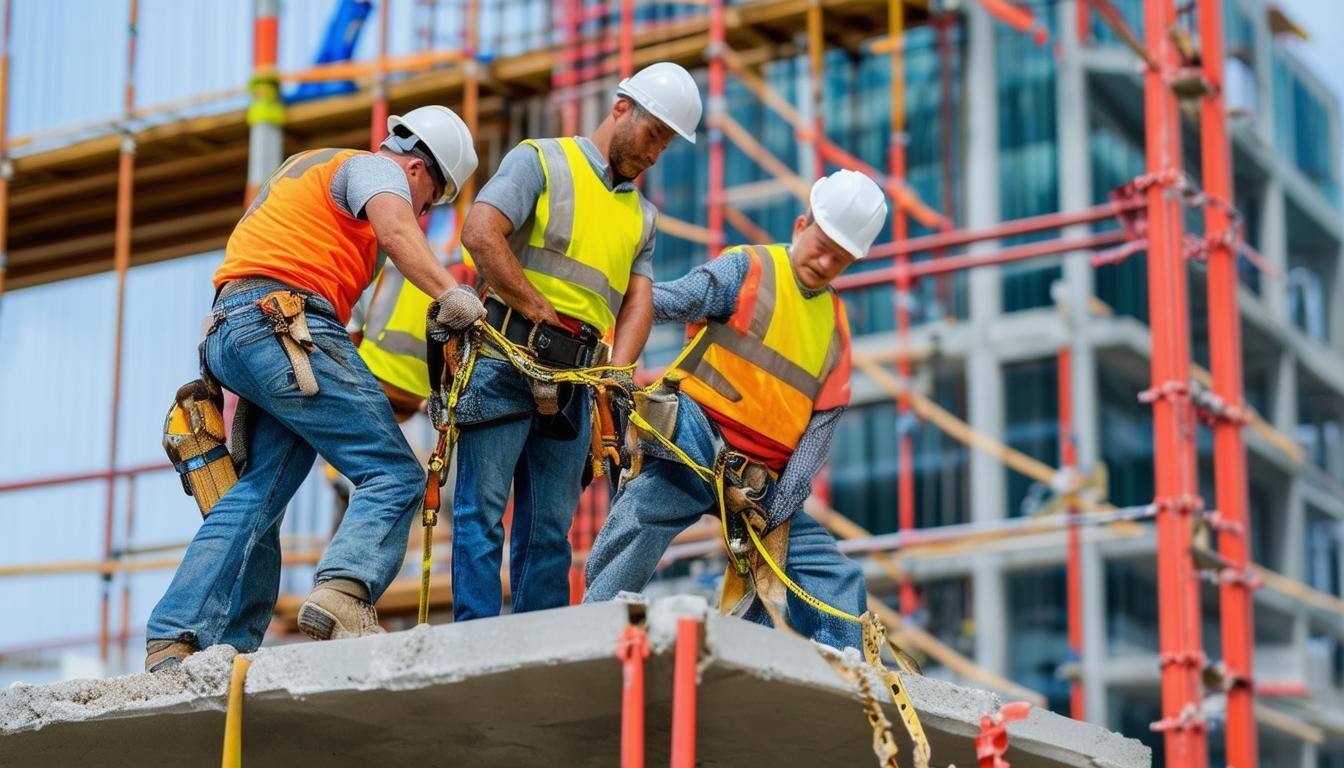2 min read
Key Safety Measures for Preventing Falls on Construction Sites
Fiorilli Construction : Sep 30, 2024 2:37:28 PM

Safety is indeed the foundation of any successful construction project, and ensuring workers' well-being is a legal requirement but more than that, a moral imperative. Among the hazards present in the construction site, falls are considered one of the deadliest and most prevalent among them. Whether employees are climbing scaffolding, moving ladders around, or simply walking on rooftops-high tops, the fall risk is always there, and unless precautionary steps are taken, it will lead to severe injuries or even fatal falls.
Statistics show that falls are the number one cause of deaths in the construction industry, accounting for 65% of fatalities. Despite advances in technology and safety measures, falls remain a constant concern, requiring continuous vigilance and proactive measures. Addressing these risks is not only a matter of compliance but also essential for fostering a strong safety culture that protects your team and enhances productivity on site.
Effective risk mitigation for falls requires good awareness of hazards, investment in proper safety gear, proper training, and maintaining an environment of continuous improvement in safety. This blog addresses some of the main strategies for preventing falls on construction sites and how to better prepare your workforce to work at heights. Let's start, from understanding PPE and its importance to establishing an emergency response plan, all the elements necessary to reduce risks and create a safer environment for everyone in the workplace.
Protecting Workers at Heights
Personal protective equipment (PPE) is a critical element in preventing falls . The right gear can make all the difference between a minor incident and a life-threatening accident. Essential fall protection gear includes:
- Harnesses: Should be properly fitted and regularly inspected for wear and tear.
- Lanyards and anchor points: Must be used according to the manufacturer’s guidelines to ensure effectiveness .
- Guardrails and safety nets: Provide an additional layer of protection around edges and elevated work areas.
Non-slip footwear and hard hats can also enhance overall safety by protecting against other site hazards. Investing in high-quality safety gear and ensuring its proper use is paramount.
Routine Inspections and Maintenance
Conducting routine inspections is crucial for detecting and mitigating fall hazards. These inspections should be performed by qualified personnel capable of identifying risks such as unstable scaffolding, unguarded edges, and slippery surfaces .
Additionally, maintaining safety equipment and ensuring it is in proper working condition is essential. Faulty or damaged equipment should be repaired or replaced immediately to prevent accidents. Keeping a well-organized and clean worksite can significantly reduce the risk of falls and improve overall safety.
Being Ready for the Unexpected
Despite the best preventive measures, accidents can still occur. Having a robust emergency response plan in place can save lives and minimize injuries when falls do happen. A well-drafted plan should include:
- Clear procedures for rescuing fallen workers
- First aid protocols
- Guidelines for contacting emergency services
Workers should be trained in these emergency procedures and know their roles in the event of an accident. Regular drills can ensure that everyone is prepared to respond quickly and efficiently should an emergency arise.
Prioritizing Safety for All
Fall prevention is an ongoing responsibility that goes beyond compliance. By investing in proper training, equipment, and regular site inspections, you can protect your team and create a safer work environment. A strong culture of safety ensures that workers remain vigilant and supported, reducing risks and improving productivity across your projects.
.png)
Building Safer Jobsites: Fall Prevention Awareness Week
Falls remain one of the leading causes of injury in construction. The good news? Every single one is preventable. We know that safety is more than a...
.png)
Beyond the Flame: Strengthening Fire Safety in Construction
In construction, every jobsite carries its own risks—and fire hazards are among the most serious. Fire Prevention Week (October 5–11, 2025) reminds...


.png)